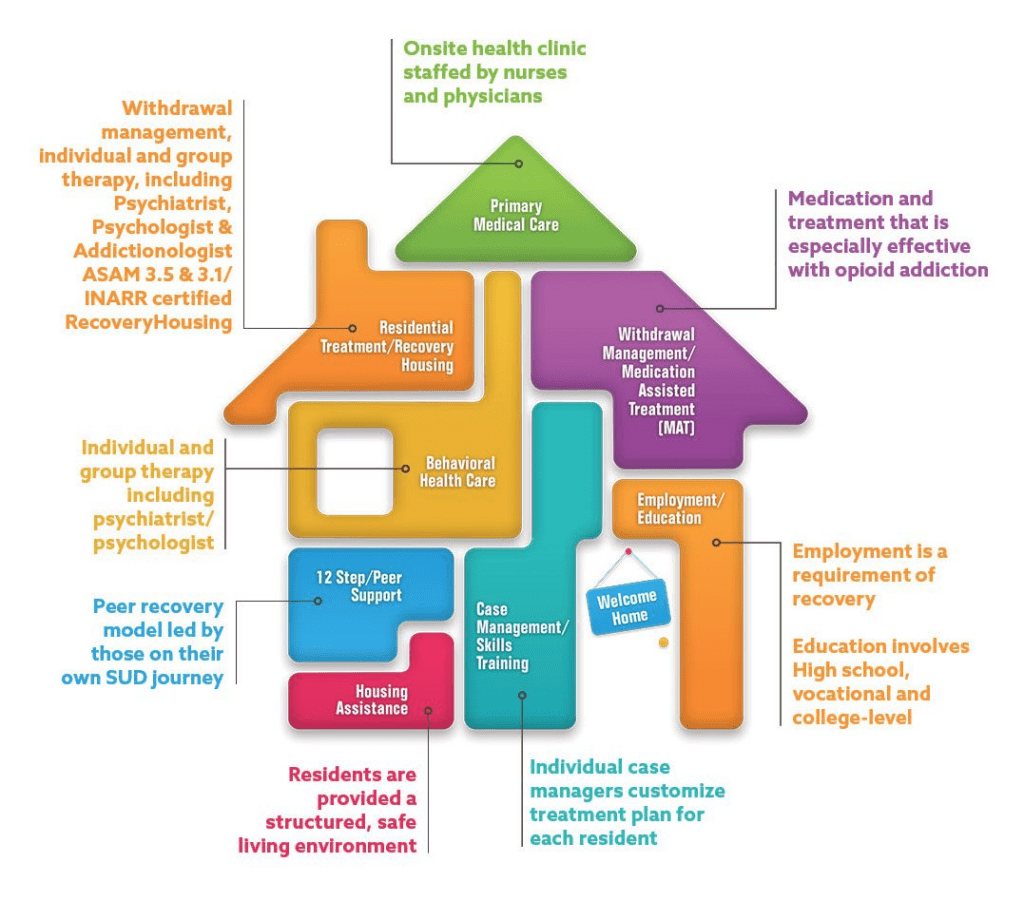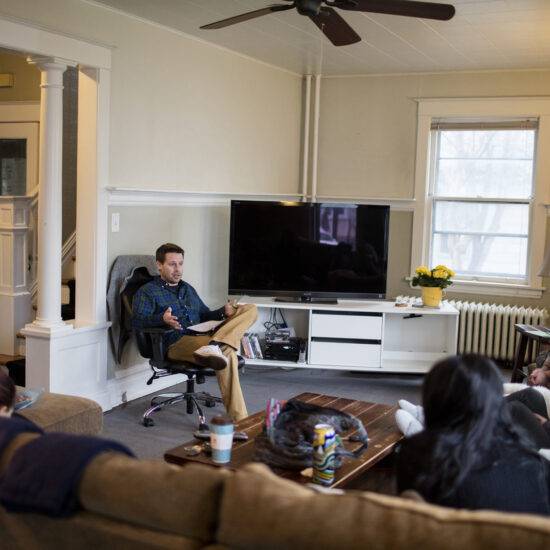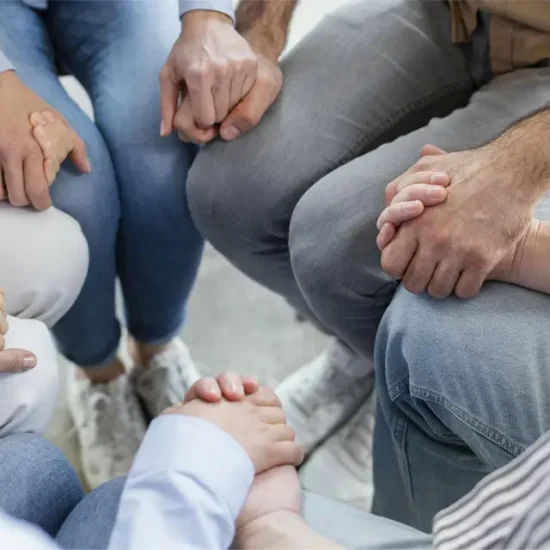The road to recovery from addiction is rarely smooth. It’s a challenging journey filled with triggers and temptations. Navigating this path alone can be daunting. This is where supportive environments like Next Step Recovery Houses become essential, offering a crucial foundation for those seeking lasting sobriety.
Next Step Recovery Houses provide structured living communities specifically for individuals in early recovery from addiction. These houses act as safe havens, offering a sober space where residents can focus on healing and developing the tools they need to remain addiction-free. With a supportive environment and a strong sense of community, Next Step Recovery Houses empower individuals to rebuild their lives.
Building a Foundation for Sobriety
Having established the importance of supportive environments in addiction recovery, let’s understand what Next Step Recovery Houses offer. These structured living communities provide a comprehensive approach to healing, empowering residents to reclaim their lives.
Structure and Organization
Next Step Recovery Houses operate in a structured environment that provides residents stability and routine. This structure can include
- Clear house rules that promote safety and sobriety.
- Scheduled activities such as individual and group therapy sessions, relapse prevention workshops, and life skills training.
- Curfews and accountability measures to help residents stay on track.
- Staff support from experienced professionals who provide guidance and encouragement.
Services Provided
Next Step Recovery Houses go beyond simply providing a safe space. They offer a range of services tailored to meet the specific needs of individuals in recovery, like,
- Individualized treatment plans: Each resident receives a personalized plan based on their unique needs and goals.
- Therapy services: Residents may participate in individual, group, and family therapy sessions to address underlying issues and develop coping mechanisms.
- Relapse prevention workshops: These workshops equip residents with strategies to identify triggers and manage cravings.
- Life skills training: Residents learn essential skills like job searching, budgeting, healthy living habits, and relationship building.
- Vocational support: Some houses may provide guidance and assistance with finding employment or educational opportunities.
Combining a supportive environment, a structured program, and a range of services, Next Step Recovery Houses create a powerful platform for individuals to achieve lasting sobriety.
Benefits of Transitioning to a Recovery House
The road to recovery is an individual journey, but it doesn’t have to be walked alone. Next Step Recovery Houses offer a supportive environment filled with benefits that empower residents to reclaim their lives and achieve lasting sobriety. Here’s how:
Safe and Sober Living Environment
Next Step Recovery Houses provide a safe environment, free from the temptations and triggers often present in an individual’s past environment. This secure and sober space allows residents to focus on healing without fear of relapse.
Peer Support and Camaraderie
Recovery houses foster a sense of community and belonging. Residents connect with others who understand their struggles, creating a powerful support system. Sharing experiences, offering encouragement, and celebrating milestones together fosters a sense of companionship that strengthens individual recovery efforts.
Accountability and Structure
These structured living environments provide clear expectations and routines that promote stability and responsibility. Curfews, house rules, and regular accountability check-ins help residents stay focused on their goals. This structure also fosters a sense of self-discipline, a crucial skill for long-term recovery.
Access to Resources and Tools for Recovery
Next Step Recovery Houses go beyond just offering a safe place to stay. They provide residents with access to vital resources and tools for recovery, such as:
- Individualized treatment plans: Tailored to address each resident’s specific needs and goals.
- Therapy sessions: Individual, group, and family therapy can help residents address underlying issues and develop healthy coping mechanisms.
- Relapse prevention workshops: Residents learn strategies to identify triggers and manage cravings, reducing the risk of relapse.
- Life skills training: Residents develop essential skills for independent living, including budgeting, job searching, and healthy relationship building.
- Vocational support: Some houses offer guidance or assistance with finding employment or educational opportunities, promoting a return to a productive life.
By providing a combination of a supportive environment, structure, and access to valuable resources, Next Step Recovery Houses empower individuals in early recovery to rebuild their lives and achieve lasting sobriety.
What to Expect Upon Entering a Recovery House

Next Step Recovery Houses aren’t simply a place to stay; they’re a bridge to a life free from addiction. Let’s explore the specific strategies these houses employ to empower lasting recovery.
Transitional Housing Model
Next Step Recovery Houses function as transitional housing, providing a temporary yet supportive environment. Residents can focus on recovery while gradually developing the skills and confidence needed for independent living. This model allows for a smooth transition back into society, reducing the risk of relapse often associated with going from a treatment center to an unsupervised environment.
Integration of Evidence-Based Practices
Next Step Recovery Houses incorporate proven methods and therapies to maximize their effectiveness. This might include:
- Cognitive-behavioral therapy (CBT): Equips residents with skills to identify and manage triggers, challenge negative thought patterns, and develop healthy coping mechanisms.
- Motivational interviewing (MI): Encourages residents to explore their own motivations for change and strengthens their commitment to recovery.
- 12-step programs: Provides a supportive community and a structured approach to recovery for those who find it beneficial.
Individualized Support Plans
Recovery is not a one-size-fits-all journey. Next Step Recovery Houses recognize this and develop individualized support plans for each resident. These plans consider the resident’s unique needs, goals, and past experiences. This personalized approach ensures residents receive the most effective support throughout their recovery journey.
Holistic Approach to Recovery
Next Step Recovery Houses understand that addiction impacts a person’s entire well-being. They take a holistic approach that addresses not just the addiction but also the underlying physical and mental health concerns. This approach might include:
- Nutritional guidance: Healthy eating habits can improve mood, energy levels, and overall health, supporting recovery efforts.
- Stress management techniques: Residents learn healthy ways to manage stress, a common trigger for relapse.
- Mindfulness practices: Activities like meditation or yoga can promote relaxation and self-awareness, fostering emotional well-being.
Next Step Recovery Houses provide a comprehensive and effective platform for individuals to overcome addiction and build a fulfilling life in recovery.
Overcoming Challenges in a Recovery House Environment
The path to recovery from addiction is rarely linear. While Next Step Recovery Houses offer a robust foundation, individuals will inevitably encounter challenges. Let’s explore some common hurdles and how these houses equip residents to overcome them.
Common Challenges Faced in Addiction Recovery
- Coping with Cravings and Triggers: Cravings for substances and exposure to triggers can be persistent, leading to an increased risk of relapse.
- Rebuilding Trust with Loved Ones: Addiction often damages relationships with family and friends. Rebuilding trust requires patience, honesty, and a commitment to change.
- Maintaining Motivation: Recovery is a marathon, not a sprint. Moments of discouragement or feelings of overwhelm can decrease motivation.
- Developing Life Skills: Many individuals entering recovery may lack essential life skills needed for independent living, such as budgeting, job searching, or healthy relationship building.
Structured Programs and Activities for Residents
Next Step Recovery Houses proactively address these challenges through various strategies:
Cravings and Triggers
- Relapse Prevention Workshops: Residents learn to identify triggers, develop coping mechanisms for cravings, and create relapse prevention plans.
- Individual Therapy: Therapists can help residents explore the root causes of cravings and develop personalized strategies for managing them.
- Peer Support Groups: Sharing experiences and offering encouragement within a supportive group setting can bolster resilience against cravings.
Rebuilding Trust
- Family Therapy: Including loved ones in therapy sessions can foster open communication, rebuild trust, and mend relationships.
- Accountability Partners: Residents can develop support systems with peers or staff members who hold them accountable for their recovery goals.
- Life Skills Training: Learning effective communication skills strengthens relationships and fosters trust.
Maintaining Motivation
- Goal Setting and Progress Tracking: Setting achievable goals and tracking progress allows residents to celebrate milestones and stay motivated.
- Individualized Support Plans: Regularly reviewing and updating plans ensures residents feel supported and challenged throughout their recovery journey.
- Positive Reinforcement: Celebrating successes, both big and small, reinforces positive behaviors and boosts motivation.
Developing Life Skills
- Life Skills Training: Workshops and programs equip residents with essential skills for independent living, such as budgeting, job searching, and healthy meal preparation.
- Educational and Vocational Support: Some houses may offer guidance or assistance with finding employment or educational opportunities, promoting a sense of purpose and accomplishment.
- Mentorship Programs: Connecting residents with mentors who have successfully navigated recovery can provide valuable guidance and support.
By acknowledging the challenges and offering a comprehensive approach to address them, Next Step Recovery Houses empower residents with the tools and support they need to overcome obstacles and achieve lasting recovery.
FAQs
What are examples of recovery programs?
- Mutual Aid Groups
- Guidance from Recovery Coaches
- Transitional Housing for Recovery
- Supervised Recovery Management Community Centers Dedicated to Recovery
- Educational Programs Emphasizing Recovery
What are the 5 pathways to recovery?
- Clinical Addiction Care Levels
- Medication-Assisted Treatment in Pharmacology
- Holistic Recovery Services
- Acceptance and Commitment Therapy (ACT)
- Community Reinforcement Approach (CRA/A-CRA)
What is an advantage of a sober living home?
A significant benefit of sober living homes is the availability of resources and services tailored to support individuals throughout their recovery journey. These resources encompass various avenues such as 12-step meetings, therapy sessions, counseling services, and other specialized addiction treatment options.
Take the first step towards a healthier, substance-free lifestyle today….
In conclusion, sober living homes offer a vital lifeline for individuals navigating the challenging path of recovery from addiction. With a range of tailored resources and services, including 12-step meetings, therapy sessions, counseling services, and specialized addiction treatment options, these homes provide a supportive environment conducive to long-term sobriety and personal growth. If you or someone you know is seeking support in their recovery journey, consider exploring the benefits of sober living homes and reach out to Bhouses.










